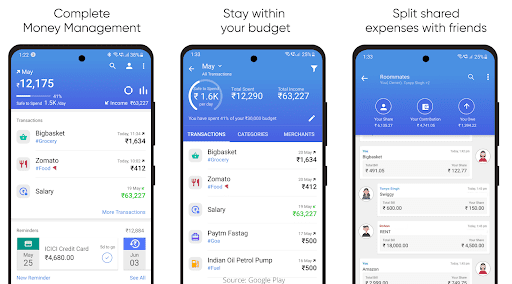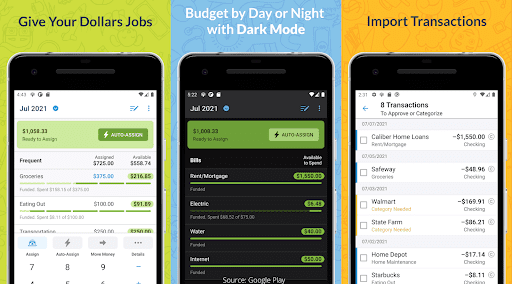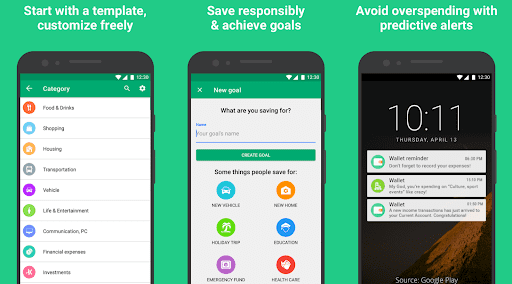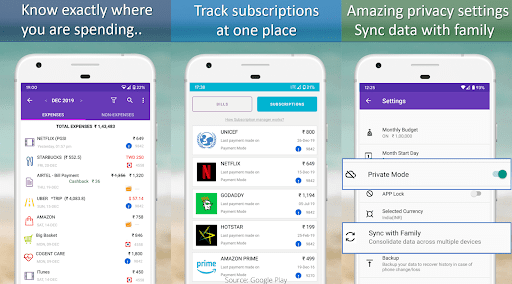blog Personal Finance | 6min Read
Published on December 22, 2021

As you begin your journey in pre-school, you learn how to count numbers and in primary school, you learn how to add, subtract, multiply and divide. Over the time till high school, you are taught about various subjects, except one – finance. Did you have any classes on money management, savings, and investments? No! Result? 70% of young adults in India barely know the basic financial concepts. This is an alarming situation but you have the power to change it.
Do you know the key to successful investments? It’s a long time horizon! And being a student, you have that key in your hands.
But don’t start investing just because someone became a millionaire at the age of 21. Start investing to seek knowledge about the world of finance. You may or may not have a million dollars in hand by the age of 21, but you surely would have established good financial habits that are going to change your future.
So, where do you start from? And how do you start investing as a student? What is the best investment plan for students? Let’s find the answers to all these questions today!
Setting The Stage: From Saving To Investing
First things first- start by opening your own bank account. Make sure you choose a nationalized and trusted bank to keep your money secure. Such banks have various schemes and policies associated with operating a minor’s bank account and will help you understand the importance of money-saving plans for students.
According to a survey conducted by National Center for Financial Education (NCFE), about 88% of the respondents between the ages of 18-29 years have their savings in cash. That is an alarming figure!
Opening your own bank account is a no-brainer. It’s literally the first step towards financial independence. Having your own bank account can add some benefits to your bucket –
-
Starting from basics, a bank account pays interest on your savings, and that adds up to your account balance over time.
-
It’s an effective medium to start saving money and make investments directly through the account.
-
As a student, you get access to numerous savings schemes, savings plans, investment plans for students and other financial solutions to save money in the long run.
-
It acts as a stepping stone for most money management practices.
Can I Invest In The Stock Market, Mutual Funds, Public Provident Fund (PPF), And Cryptocurrencies?

Yes and No!
Confused? Let us clarify this for you.
As per SEBI regulations, you can open a demat or a trading account in your name, but your account will be operated by your parents or a guardian till you become an adult. The minimum age to invest in stocks and mutual funds in India is 18 years. You cannot enter into a contract with a stockbroker to purchase or sell any security. Till then, your parents can buy stocks or mutual funds and transfer the securities, i.e. make an off-market transfer to your demat account.
For Public Provident Fund or PPF, your parents can open an account in your name and can invest a maximum of 1.5 lakhs per year. Only one of the parents can open a PPF account and they need to be an Indian resident. Later, they need to complete other formalities and submit an initial contribution to the PPF account. After the age of 18, you can start to contribute from your end.
On attaining adulthood, you can complete the legal procedures involved to change your account status from minor to major and start investing. So, the next time while taking pocket money from your parents, ask them to buy some stocks or start a monthly SIP in your name as the first step towards investment.
Finally, let’s explore the avenue of digital currency. These days, cryptocurrencies have become the talk of the town, with the lucrative returns they offer. While they are a great way to diversify investment plans for students, learning the nitty-gritty of blockchain technology and how cryptocurrencies work is paramount before investing in them. If you’re interested to learn everything about cryptocurrencies, check this article out right away!
The Power Of Compounding
Even if as teenagers you are short on money to make investments, you have one major beneficial element that many adults lack – time. Did you know that ‘compounding’ was referred to as “The Eighth Wonder of the World” by Albert Einstein, he further added, “He who understands it, earns it; he who doesn’t, pays for it.”
Another NCFE survey reveals that only 11% of respondents of the age-group 18-29 understand compound interest. Do you?
So, if you save Rs. 20,000 by the age of 20, it will grow to over Rs.10,74,000 if invested at just a 10% interest rate, by the time you turn 60. If you invest the same amount at the age of 30, it will amount to Rs. 3,97,000. And if invested at 40, it will amount to Rs. 1,47,000. Such is the power of compounding! So, early the investment, better the outcomes!
Set Short-Term And Long-Term Goals
It is crucial to set your short-term and long-term goals, and the money required to meet those goals before starting to invest. Short-term goals include saving for the weekend, side-business, presents for family, newly released electronic gadgets, etc. while long-term goals include college fees, higher education expenses, paying off education loans, etc. So, even if you start small today, you indeed are taking a big step towards your future.
Along with the stock market, and mutual funds, there are several other avenues like Sovereign Gold Bonds, PPF, digital gold, government schemes, etc. wherein you can invest as a minor. All of these investments would be operated by your parents or guardians till you turn 18. But an early start in the investment world even before you turn 18 provides you phenomenal advantages, and even your parents will agree to it.
Poor Knowledge = Bad Advice
Once you start your journey with investments, you are bound to hear assumptions and theories from your near and dear ones. But before you decide where to invest, it is extremely important to have a clear understanding of things rather than blindly following the myths.

-
Do not just bluntly jump into investing without understanding the basics of the market dynamics. Educate yourself before investing. Seek the right resources to learn the basics of investment, understand market terminologies, and how the market works.
-
Time in the market is more important than timing the market. Don’t expect huge returns immediately. Here, patience and consistency are key.
-
Investing is not gambling! Investments improve the overall economy, while gambling gives money collected from losers to a winner.
-
Don’t jump on the bandwagon. Just because a friend or a relative has invested, you too should invest here – that doesn’t always work! Do your own due diligence and make your analysis before making the investments.
-
Try using a stock simulator before investing with real money. This will give a virtual experience of the market and determine if investing in stocks is for you.
Learn To Invest In Yourself
Being able to start investing at such a young stage, you have the flexibility and time to explore more about investments and learn from your success and failures. You have years to study the market and refine your investing strategies. As a part of the young tech-savvy generation, you have access to tons of online resources, platforms, investing tools, and techniques that will help you to improve your investing skills. Along with that, you can also refer to financial literacy apps, money management apps, books, and podcasts on finance to gain better expertise and confidence to invest.
Practically, there’s no easiest or fastest way to grow your money. Don’t fall into such traps. Adopt the ways you have learned in this article, invest in your time and knowledge, and grow your money.
So, what are you waiting for? Join us at Big Red Education and learn to invest wisely for a secure and reliable future.























 11th – 17th Jan 2022
11th – 17th Jan 2022